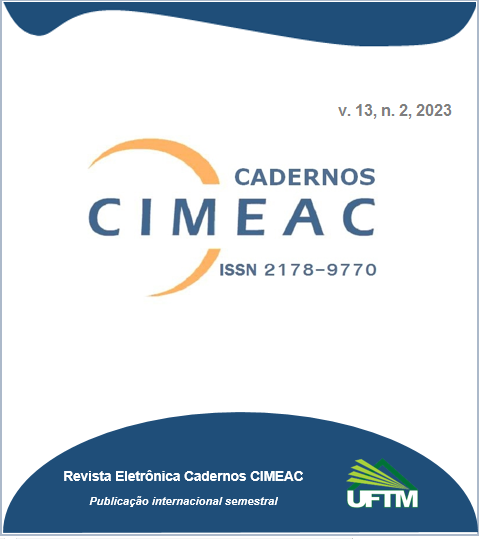Agroecología y enseñanza de las ciencias naturales: una relación a considerar en la escuela rural
DOI:
https://doi.org/10.18554/cimeac.v13i2.6965Resumo
La agroecología, como campo de aplicación multidisciplinar, se sustenta teórica y metodológicamente en varias disciplinas, pero su fundamento central es el conocimiento tradicional, el cual retoma principios ecológicos, sociales y económicos de las comunidades para favorecer los agroecosistemas y sus diversas formas de regulación. En el presente artículo se describen tres perspectivas de la agroecología, producto del análisis bibliométrico realizado por los autores, y que permite vislumbrar elementos a considerar en la enseñanza de las ciencias naturales, especialmente desde la escuela rural, con el fin de sugerir algunas posibilidades investigativas, pedagógicas y didácticas para su abordaje. La agroecología abre nuevas opciones de estudio e investigación en la escuela rural, concebida ésta como centro de convergencia cultural, está cobrando interés global, articulándose con procesos sociales y políticas públicas de numerosos países del mundo, con el fin de rescatar, visibilizar y valorar la sabiduría local como medio para proponer vías encaminadas para promover, entre otras cosas, la soberanía alimentaria, el cuidado del ambiente y la resiliencia de los agroecosistemas, de acuerdo con contextos históricos y geográficos específicos de las comunidades; para ello es esencial articular conocimientos, intereses, necesidades y saberes culturales ancestrales, tradicionales y locales desde la escuela rural.
Downloads
Publicado
Edição
Seção
Licença
Os autores que publicam nesta revista concordam com os seguintes termos:
(a) Não cobramos dos autores para a publicação neste periódico.
(b) Autores mantém os direitos autorais e concedem à revista o direito de primeira publicação, com o trabalho simultaneamente licenciado sob a Licença Creative Commons que permite o compartilhamento do trabalho com reconhecimento da autoria e publicação inicial nesta revista.
(c) Autores têm permissão e são estimulados a difundir e a distribuir a versão publicada de seu trabalho online (ex.: em repositórios institucionais ou na sua página pessoal) após o processo editorial, já que isso pode aumentar o impacto e a citação do trabalho publicado (Veja O Efeito do Acesso Livre).
* * *
AUTHORS COPYRIGHT AND PUBLISHING RIGHTS
Authors who publish with this journal agree to the following terms:
(a) This journal does not charge authors for publication.
(b) Authors retain copyright and grant the journal right of first publication with the work simultaneously licensed under a Creative Commons Attribution License that allows others to share the work with an acknowledgement of the work's authorship and initial publication in this journal.
(c) For authors whose articles have been accepted: authors are permitted and encouraged to post their work online (e.g., in institutional repositories or on their website) after the publication of the text in Cadernos CIMEAC, as it can lead to productive exchanges as well as earlier and greater citation of published work (See The Effect of Open Access).

 10.18554/cimeac
10.18554/cimeac

